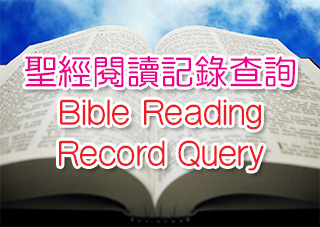Read chapter in full: www.biblegateway.com/passage/?version=ESV&search=Ruth+001
Ruth
Introduction
The short book of Ruth is a bridge between the two major parts of Israel’s covenant history. The first part (Genesis–Judges) focuses on how Abraham’s descendants became a nation and on the covenant God made with Israel. The second part (Samuel–Kings) tells the story of the nation’s kings and the covenant God made with David as the head of Israel’s royal line. Ruth helps the transition by opening in the days of the judges and ending with the genealogy of David.
The book appears to have been written to defend David’s right to be king. He was the great-grandson of a Moabite named Ruth. Because the people of Moab didn’t help the Israelites when they came out of Egypt, the law didn’t permit any descendant of a Moabite to join Israel, down to the tenth generation. If they couldn’t even join the community, how could one of them serve as king?
The book is set up like a drama or stage play. Each scene features a short introduction and then dialogue between the characters. The book ends with a ten-generation genealogy leading up to David. So the form of the book mirrors its purpose, which is to show that genuine faith was present in a woman from a nation whose descendants were normally excluded for ten generations.
The book also shows how God’s purposes are accomplished in the world. God’s good laws (allowing the poor to collect grain in the fields), his providence over events, and the personal kindness of people all combine to help the story find a redemptive conclusion.
www.bible.com/zh-TW/bible/111/RUT.INTRO1.NIV
Ruth Chapter One (ESV)
15 And she said, “See, your sister-in-law has gone back to her people and to her gods; return after your sister-in-law.” 16 But Ruth said, “Do not urge me to leave you or to return from following you. For where you go I will go, and where you lodge I will lodge. Your people shall be my people, and your God my God. 17 Where you die I will die, and there will I be buried. May the Lord do so to me and more also if anything but death parts me from you.” 18 And when Naomi saw that she was determined to go with her, she said no more.
REFLECTION:
The backdrop of this story of Ruth is the period of the Hebrew judges, an era marked by apostasy, lawlessness, and savagery. By contrast, there are no murders and no villains in Ruth. Rather, the story portrays life in a peaceable village setting among hardworking agrarian peasants. Neither are there supernatural events in the story. The Spirit of God descends upon no one and the angel of the Lord visits no one. Instead, we see God working behind the scenes – a God of “coincidences”, accomplishing his purposes through ordinary people who overcome adversity by means of personal initiative, ingenuity, and acts of selfless devotion.
- Naomi is formally releasing her daughters-in-law from any future responsibility toward her. She entrusts these women to God’s care through her prayer since she is unable to provide for them. Despite her own distress, Naomi also recognized the need to look to the welfare of others and through her prayer, she entrusted these women to God’s care (vv8-9).
- Ruth’s vow of loyalty to Naomi and the Hebrew God is certainly a countercultural decision by this Moabite widow. She willingly exchanges her ethnic and religious heritage for the people, culture and religion of Naomi. Perhaps Ruth sensed a faith in Naomi that Naomi herself had lost sight of. At any rate, Ruth made a commitment – to Naomi and to Naomi’s God. This reflects the process by which men and women today often find their personal relationship with God. Individuals are drawn to a Christian or to Christians and through them come to know Christ.
- When we share our lives with others, even when we’re having troubles as Naomi was, something about the reality of our relationship with God shines through and draws others to the Lord.
PRAYER:
Lord, I thank You for the love of Ruth for Naomi and for her willingness to abandon her old life so that she may receive the new life from You. May I too abandon myself completely to You and Your loving purposes. May my life reveals the loving relationship You and I share so that others may be drawn to You.






